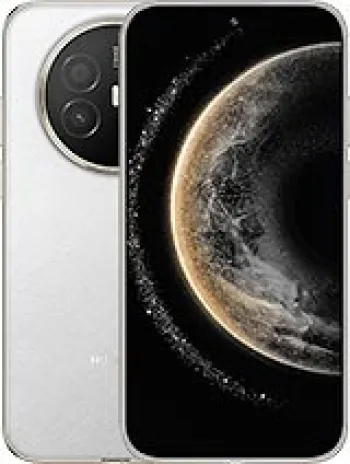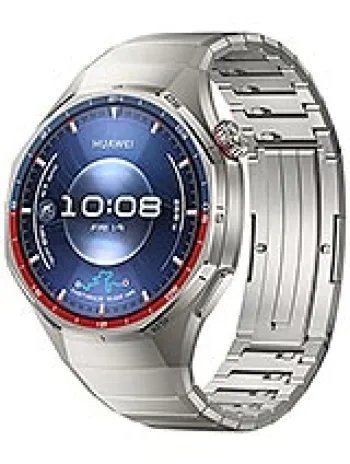
Network Capabilities
The Huawei Y3II supports various network technologies, including GSM, HSPA, and LTE, making it a versatile device for connectivity. It features dual SIM support, allowing users to maintain two separate phone numbers simultaneously. This feature is beneficial for those who travel frequently or manage work and personal lines. The availability of 4G bands (1, 3, 7, 8, 20) ensures high-speed internet, while the HSPA technology provides fast data transfer rates even in areas where LTE might be unavailable.
Launch and Availability
Announced in April 2016 and released in June 2016, the Huawei Y3II was introduced as an affordable smartphone option. Although it has been discontinued since its initial release, the device made a mark in the market for budget-conscious consumers seeking a reliable and functional smartphone without the premium features of high-end devices.
Design and Build
The Huawei Y3II has compact dimensions of 134.2 x 66.7 x 9.9 mm and weighs only 150 grams, making it convenient and portable. The phone is constructed with a glass front and a plastic back, framed by a durable plastic border, ensuring cost-effectiveness without sacrificing practicality. The dual SIM slot accommodates two micro-SIM cards, further enhancing its utility for users who require dual connectivity options.
Display Features
The device is equipped with a 4.5-inch TFT display, providing a screen-to-body ratio of approximately 62.3%. Although the resolution of 480 x 854 pixels may not match high-end smartphones, it is sufficient for basic daily operations. The pixel density of ~218 ppi offers decent clarity for viewing text, images, and video content, making it suitable for casual users who do not demand high-definition graphics.
Platform and Performance
Running on Android 5.1 Lollipop with Huawei's EMUI 3.1 skin, the Y3II delivers a user-friendly experience. It is powered by a MediaTek MT6735M chipset in the 4G model, featuring a quad-core 1.0 GHz Cortex-A53 CPU and a Mali-T720MP2 GPU. The 3G model has the MediaTek MT6582M chipset with a quad-core 1.3 GHz Cortex-A7 processor and a Mali-400MP2 GPU. These specifications are adequate for basic multitasking and running standard applications, although they may struggle with high-performance gaming or resource-intensive tasks.
Memory and Storage
With 1GB of RAM, the Huawei Y3II provides modest memory capable of handling essential functions, but may encounter lag with heavy multitasking. The internal storage of 8GB can be expanded via the dedicated microSDHC slot, enabling users to store additional apps, photos, and media files. This expandability is a critical feature for users looking to maximize their device's capacity without upgrading to a higher-priced model.
Camera Specifications
The main camera boasts a 5 MP sensor with autofocus and dual-LED flash, capturing moments in reasonable quality. While it may not rival the capabilities of modern smartphone cameras, it is suitable for social media uploads and casual photography. The 2 MP front-facing selfie camera is modest, catering to users who occasionally indulge in video calls or selfies.
Audio and Connectivity
The Huawei Y3II includes essential audio features such as a loudspeaker and a 3.5mm headphone jack, facilitating music and media playback through external headphones or speakers. For connectivity, the smartphone supports Wi-Fi 802.11 b/g/n, Bluetooth 4.0, and microUSB 2.0, ensuring that users can easily connect to networks and other devices for data transfer and media sharing.
Additional Features
Equipped with basic sensors like an accelerometer and proximity sensor, the Y3II covers essential technological functionalities. It also supports GPS for location tracking and does not include NFC, which may limit certain short-range wireless communications. An FM radio receiver provides access to local radio stations, a feature appreciated by users who enjoy traditional broadcast media.
Battery and Power
The smartphone features a removable 2100 mAh Li-Po battery, allowing users to replace it without requiring technical assistance easily. While this battery capacity may seem modest in the current market, it can sustain the device for a full day of moderate use, depending on usage patterns and applications running in the background.
Color Options and Pricing
To cater to various consumer preferences, the Huawei Y3II was offered in several colors, including Obsidian Black, Arctic White, Sand Gold, Rose Pink, and Sky Blue. These options allowed personalization and added aesthetic appeal to the device. Initially priced at about 80 EUR, the Y3II was positioned as an entry-level phone, appealing to those seeking a cost-effective solution without unnecessary features.
Key Features of Huawei Y3II
- Supports GSM, HSPA, and LTE Technology
- Dual SIM (Micro-SIM, dual stand-by)
- Compact Design with 4.5-inch Display
- Android 5.1 (Lollipop) with EMUI 3.1
- Available in 4G and 3G Models with Different Chipsets
- Expandable Storage with microSDHC Slot
- 5 MP Main Camera with Dual-LED Flash
- FM Radio and 3.5mm Audio Jack
- Bluetooth 4.0 and GPS Support
- Available in Multiple Colors
- Removable 2100 mAh Battery
- Affordable Price (~80 EUR)
Huawei Y3II Drawbacks
- Low screen resolution with 480 x 854 pixels, resulting in low pixel density (~218 ppi).
- Limited internal storage of 8GB which might not be sufficient for many users.
- Only 1GB of RAM, which can result in slower performance and multitasking issues.
- Runs on the outdated Android 5.1 (Lollipop).
- Basic camera setup with a 5 MP rear camera and a 2 MP front camera, which may not meet the expectations of modern smartphone users.
- No NFC support, limiting mobile payment options.
- Battery capacity of only 2100 mAh, which may lead to frequent charging especially with moderate to heavy use.
- Discontinued status, meaning no further updates or official support from Huawei.
- Plastic build might not appeal to users looking for high-end material finishes.



View Also
More Phones
All Rights Reserved +14268 Phones © Mobilawy 2025

























